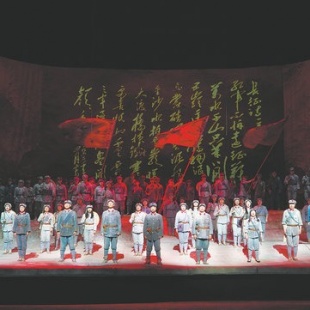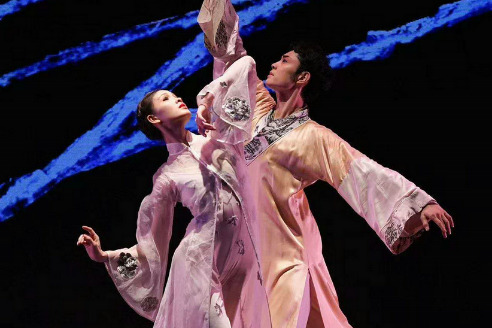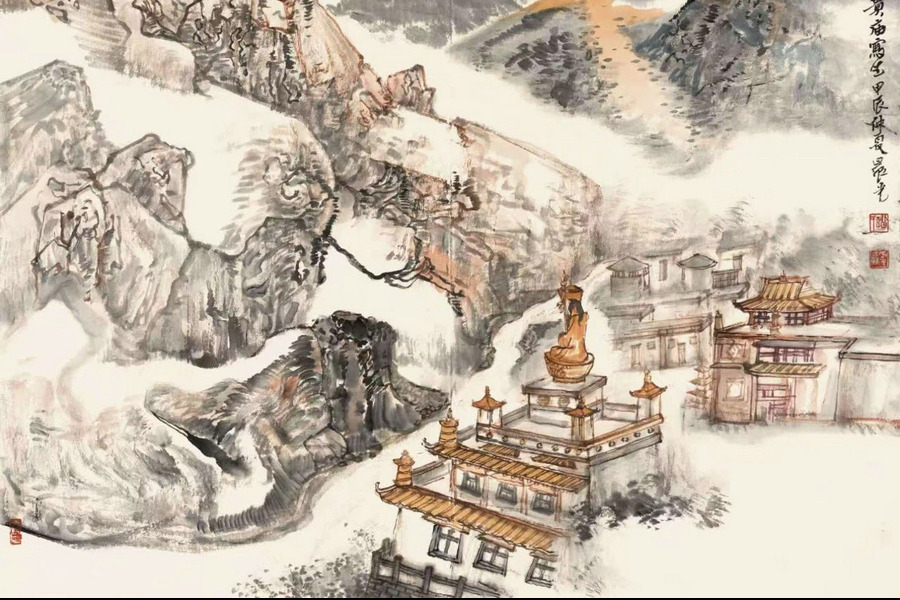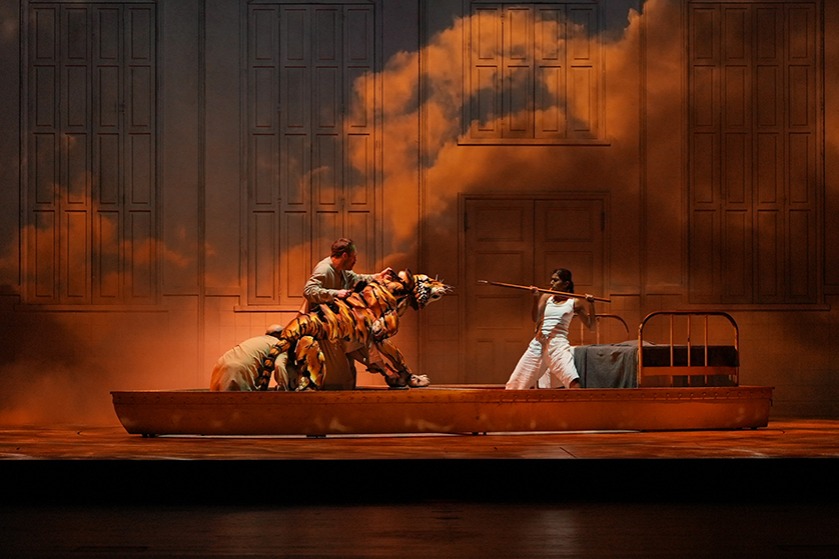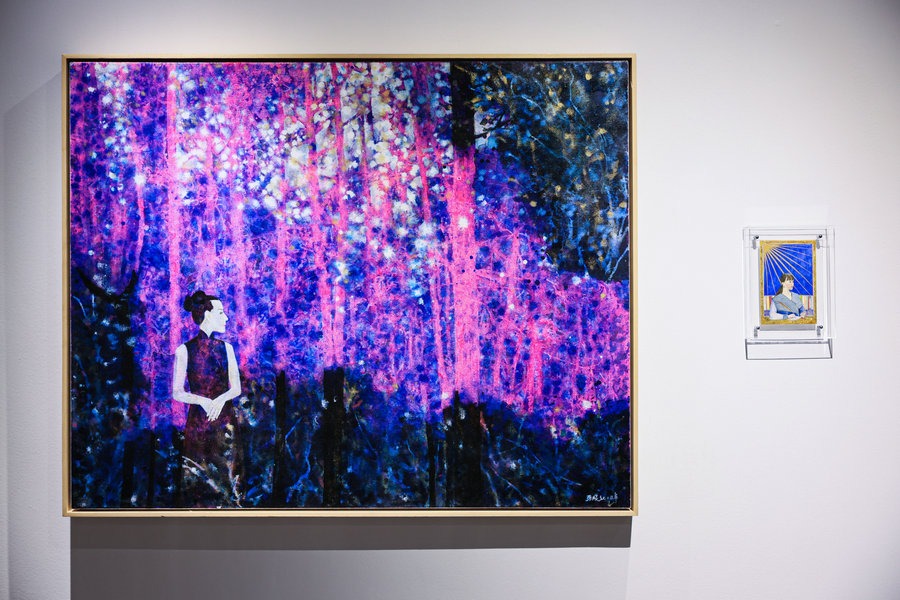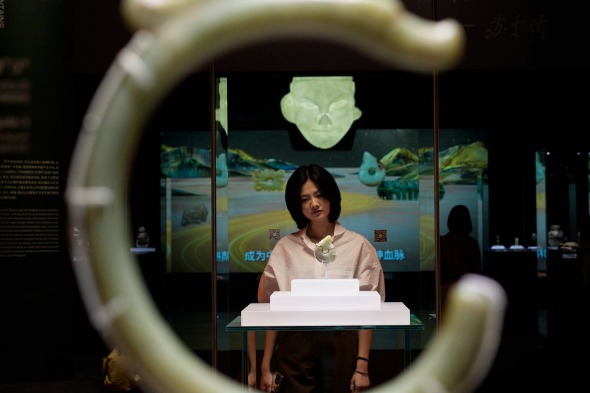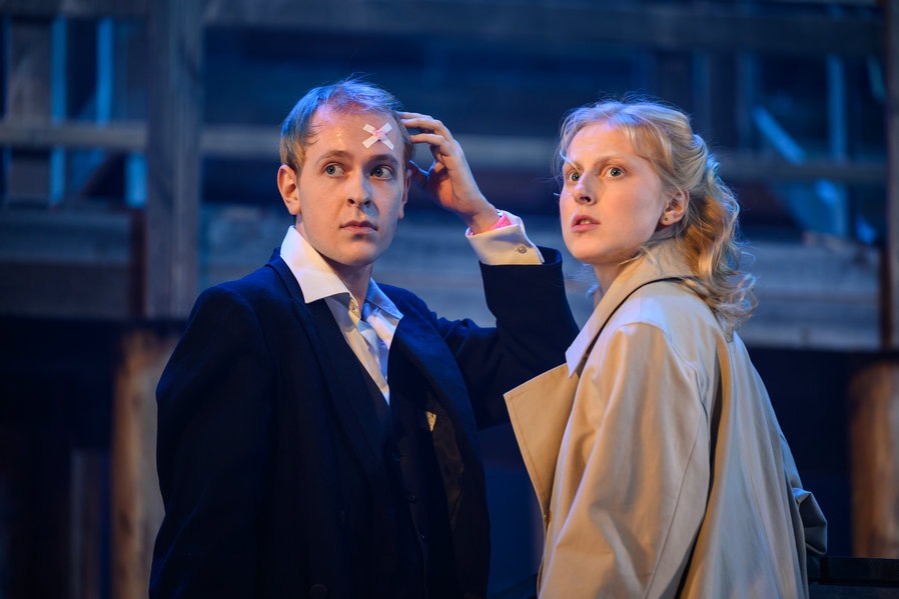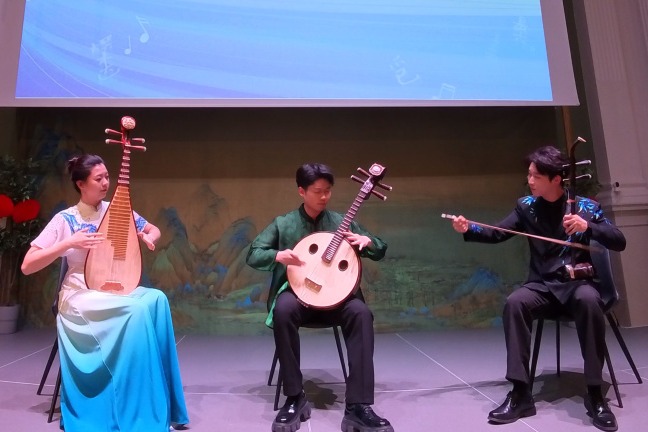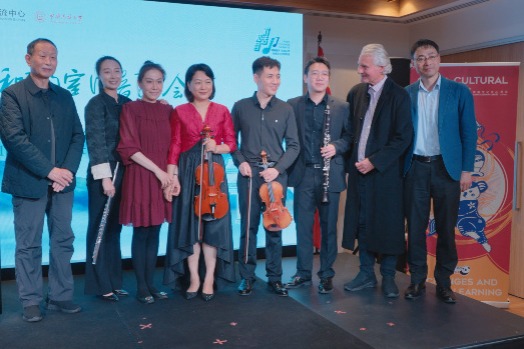Opera revisits epic tale of faith and sacrifice

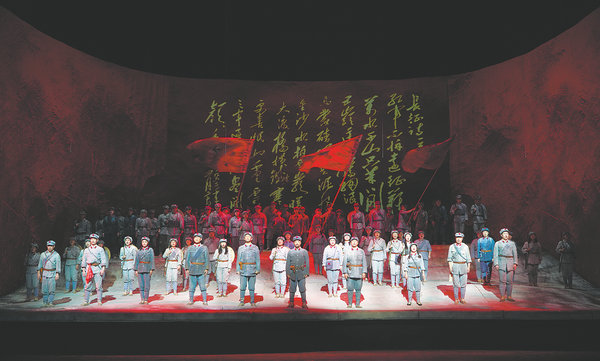
The Chinese opera The Long March, created by the National Centre for the Performing Arts, is returning to the stage for its 13th round of performances from Tuesday to coming Sunday in Beijing.
This large-scale original production is not just an artistic endeavor but a powerful tribute to a key chapter in modern Chinese history. Under the direction of conductor Lyu Jia, the opera features the NCPA Orchestra and Chorus, with celebrated tenors Yan Weiwen and Wang Hongwei taking on lead roles.
The Long March was written by acclaimed scriptwriter Zou Jingzhi, composed by Yin Qing, and directed by Tian Qinxin. The opera took four years to bring to life, with each creative decision grounded in a deep respect for history.
Premiered on July 1, 2016, The Long March was originally staged to commemorate the 80th anniversary of the Red Army's historic military maneuver, which took place from 1934 to 1936. The opera dramatizes key moments, such as the tragic Battle of the Xiangjiang River and the harrowing crossing of the Luding Bridge under a hail of enemy fire. These scenes, rendered with musical and theatrical intensity, underline the incredible courage and determination of the soldiers. A filmed version of the opera by the NCPA premiered on July 1, 2017, allowing more audiences to enjoy the opera.
Zou immersed himself in historical documents during the writing process, striving to represent the legendary journey of the Red Army not only with historical accuracy but also emotional depth. He was particularly moved by the letters of the revolutionary martyrs, which revealed the personal sacrifices and unwavering ideals of the Red Army soldiers.
"The Long March is one of the greatest events of the 20th century," Zou said during an earlier interview. "Beyond the hardships, what truly defines the Long March is the spirit of fearlessness, sacrifice, and pursuit of ideals. That is the soul of this opera."
Composer Yin worked for two years to complete the score, blending Western operatic traditions like bel canto with Chinese folk singing. He also wove in regional folk melodies from various parts of China that the Red Army passed during their journey.
Conductor Lyu has witnessed the opera's evolution through years of refinement. He notes that arias, such as We Shall Triumph and In the Cold Night, reflect the Red Army's firm belief and deep sense of purpose.
"This is not just a war story," Lyu says. "It is about youth, belief and sacrifice. It speaks across generations."
The opera also brings to life individual characters who embody the Long March spirit. Among them is the former regiment commander and political commissar Peng, and the young soldier Ping Yazi, a new recruit who joins the Red Army. These characters, drawn with warmth and nuance, exemplify the bravery and moral clarity that sustained the Communist Party of China-led forces during their grueling march.
"Every rehearsal of The Long March is a sacred experience," says tenor Yan, who plays the role of commissar Peng. "It's not just about singing and acting — it's about passing on the legacy of a spirit that shaped a nation. I hope young performers and audiences can understand the spirit, just as we do on stage."
chennan@chinadaily.com.cn


